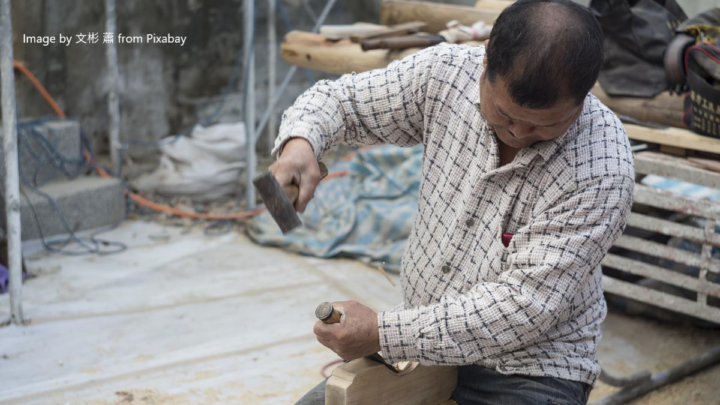– Rev. Joyce Day
The story of King David and Nathan’s discussion about building a temple for God is found in both 2 Samuel 7 and 1 Chronicles 17. David is feeling settled and perhaps even a bit bored. After all, his life had been pretty exciting up to this point.
- He had been pulled from the sheepfold to be unexpectedly and secretly anointed as king of Israel.
- He had faced down and killed the giant Goliath.
- He had faithfully served the present king Saul.
- He had run for his life when Saul turned against him.
- He had spent years in the wilderness gathering his own loyal army.
- And then when the time came, when Saul was dead, he stepped into the role for which he had been chosen—the greatest king of Israel.
Now, even though there are still skirmishes to be fought and a nation to be governed, life had calmed down. David needed something to which he could funnel his energy. So it was (in my mind, at least) that he came up with the brilliant idea of building a “home” for God. After all, he himself now lived in a beautiful palace. It wasn’t right, he said, that God should be stuck in a musty old tent.
There are two examples of humility in this story. First, David demonstrates a humble spirit when he seeks counsel regarding his decision. How many of us bother to do that when we come up with our own “brilliant” ideas? I know I’m more apt to rush into doing what I think ought to be done without consulting anyone. After all, isn’t it better to ask forgiveness than permission? (By the way, the answer to that question is generally “No!”.)
For me, though, the more striking example comes from Nathan. When David first consults Nathan, he, too, thinks this is a brilliant idea. Without much thought and no prayer, he declares, “What a great idea! Do it!”
That night, however, God comes to Nathan in a dream and says, “Hang on, now, I never said I wanted a house. I’ve been living in a tent for a long time, and I rather like it. I get to move around, there’s not much in the way of housekeeping, and I really like that musty, earthy smell. I did create it, after all.” (Okay, so I’m not only paraphrasing but expanding on the real Scriptures here. Forgive me, it’s just fun to do sometimes.)
Nathan wakes up from this dream with a choice to make. He can either tell David what he dreamed and admit that his earlier enthusiasm was a mistake, or he could brush off the dream as just the result of that late night taco run. That would be the easier thing to do. None of us likes to admit we’ve made a mistake. We prefer to try to cover it up and, when necessary, blame someone else for the unfortunate outcome. It takes a spirit of true humility to say, “I was wrong.”
I wonder what would have happened if Nathan had chosen to stay silent about his dream. I wonder how the rest of the story would have gone. Would David have received the covenant promise from God that God would create a “home” (i.e., a dynasty) for David, one that would culminate in the birth and reign of Jesus the Christ? Oh, I’m quite sure God would have made a way for that plan to unfold somehow, but would David have been as thoroughly blessed, as thoroughly a part of the plan as he was meant to be?
We all make mistakes. What we don’t always do is confess them and work to fix them. Not all of us are willing to demonstrate the humility that requires. Oh, what a glorious outcome we miss, though, when we don’t do so! Our mistakes can become God’s best tools if we are only willing to turn them over to God through confession and repentance and if we are only willing to admit them to others so that the lessons learned can be shared.
There’s a wonderful scene in Star Wars: The Last Jedi that teaches this truth (for those of us who love to get our Bible lessons from that source). Luke has been forced to face his greatest failure—the fall of his nephew and Jedi student, Kylo Ren. The weight of that failure is too much for him to bear (he thinks), and he determines to destroy everything connected to his Jedi teaching, including all the ancient books of Jedi wisdom. Meanwhile, Yoda’s spirit, watches him in the background. At the last moment, Luke decides he cannot do it. He cannot destroy all that wisdom. So Yoda does it for him. Yoda then scolds Luke for not fulfilling the mission Yoda had given him to pass on what he had learned: not only the wisdom, strength, and skill Luke had gained but also the weaknesses, failures, and follies he had experienced. I confess that it took every ounce of self-discipline in me not to jump out of my theater seat and yell, “YES!!!!!”
We all make mistakes. Let us have the humility to admit that truth and to pass on the wisdom we learn from their consequences. We all are wrong sometimes. Let us never fear to say so and thereby help others to avoid making mistakes because of us. That is true wisdom.
For those who have never seen The Last Jedi or who, like me, just can’t get enough of that scene, check it out on YouTube

